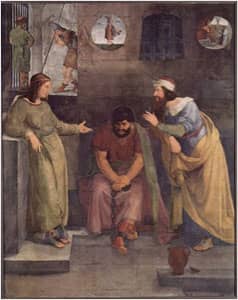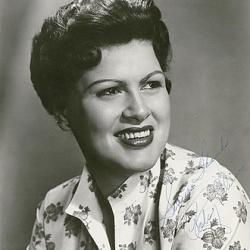Here we start chapter 38, which is a very odd interlude in this story. It is all about Judah's life. Judah marries a woman names Shua and they have three children names Er, Onan, and Shelah. He finds a wife for Er, named Tamar. But G-d saw that Er was evil so he dies. Now we have a widow with no children and the usual thing at the time was for the brother to marry her and their children would be considered the brother's children. But Onan doesn't want to marry her because he doesn't want his children to be considered Er's. So during intercourse, he ‘wastes his seed upon the ground.' Well, then Onan dies.
Judah is not deterred but rather determined. He tells her to wait until Shelah is old enough to marry. In the mean time, Judah's wife, Shua, dies. Tamar notices that Shelah is old enough to marry but she has not been married to him yet so one night, she dresses up as a prostitute and offers herself to Judah. She demands collateral for payment and he gives her his staff and ring . . . at which point she "disappears." Judah quickly finds out that his daughter-in-law has become pregnant and demands that she be killed. She doesn't turn around and accuse him but she pulls out his items and tells the town that these items belong to the baby's father. Judah relents and accepts that they are his. She eventually gives birth to twins. During birth, one baby sticks his hand out. The midwife ties a red thread around its wrist and then the baby pulls it back into his mother. Then the second child is born first. So the first-born is actually born second. Perez, the child who was born first but is actually the second child, and Zerah, who emerged first but retreated and was born second.
Why do we have this interlude here? It is here to give us some perspective. Judah was very well esteemed by his brothers. He stopped Joseph from being killed but instead he suggested slavery. When the other brothers saw how much grief their actions caused their father, they lost respect for Judah. At the same time, when he is so low, these are our first steps into the messianic dynasty. David is descended from Perez and so, our tradition tells us, with be the messiah (moshiach).
Back to Joseph. If you remember, before our Judah interlude, Joseph has just been sold to Potiphar. Well, Potiphar was very happy with Joseph's work in his household. This definitely had to do with the fact that G-d was protecting him and his work. Not only was Joseph protected and blessed by G-d but he had also been blessed with his mother's internal and external beauty, which leads to his downfall in Potiphar's house. Potiphar's wife, Zuleikha, took a liking to him. She dropped some not-so-subtle hints but he managed to avoid her until one day when he couldn't. She grabs him one day when everyone was out of the house but he slipped out of his shirt and ran. Not wanting to be left holding the shirt, as it were, she created a story blaming him, which landed Joseph in the Pharaoh's jail.
 Yet again, G-d protected Joseph and in the jail he quickly rose to a trusted position. In total, he spends about twelve years in prison but instead of wallowing in his anger or sorrow, he handles the situation with grace. After several years, Pharaoh's wine steward and baker were thrown in jail. In line with his graceful attitude, he reaches out to other prisoners and is kind to them. He noticed one day that they were unusually down. They were more upset than the day before. If we look toward the future and the situation in Egypt, the entire world is saved from famine because of Joseph's sensitivity toward these two people.
Yet again, G-d protected Joseph and in the jail he quickly rose to a trusted position. In total, he spends about twelve years in prison but instead of wallowing in his anger or sorrow, he handles the situation with grace. After several years, Pharaoh's wine steward and baker were thrown in jail. In line with his graceful attitude, he reaches out to other prisoners and is kind to them. He noticed one day that they were unusually down. They were more upset than the day before. If we look toward the future and the situation in Egypt, the entire world is saved from famine because of Joseph's sensitivity toward these two people.
The wine steward tells Joseph his dream. There were three grape vines and he was squeezing them into Pharaoh's cup. Joseph tells him that this means in three days time, he will be restored to Pharaoh's good graces and be released. He asks the steward to remember him to Pharaoh. The baker sees that Joseph got it right (how? Rashi says that each man was given his own dream and the correct interpretation of the other man's dream) and asks for help with his dream. He has three baskets of bread. Joseph tells him that in three days, he will be killed for his crimes.
Three days later, it was Pharaoh's birthday. He reevaluated all the cases and released the wine steward and executed the baker. But the steward did not remember Joseph, purposefully. On the surface, he did this because he didn't want to remind Pharaoh that he had been in jail but Rashi tells us it was because G-d was punishing Joseph for relying on a man and not G-d to get him out of jail.
This parsha begins and ends with dreams. Joseph sees that there is more to his future than being a shepherd like his brothers but the process of how he got to his future path, that is what makes this story interesting.
Parshat Vayeshev from G-dcast.com
More Torah cartoons at www.g-dcast.com





